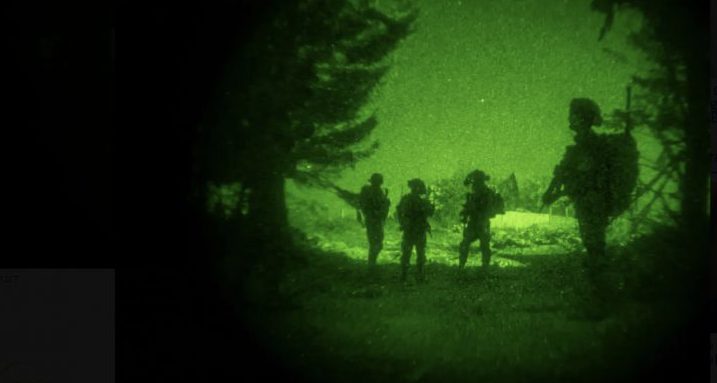New York University School of Law bars 31 pro-Palestinian Arab students from campus facilities unless they sign a document renouncing protest activity.
In a move stirring controversy and criticism, New York University School of Law has prohibited 31 students from accessing key campus buildings, demanding they commit in writing not to engage in protest activities in order to be readmitted—just days before final exams, The Intercept reported on Saturday.
The affected students were labeled “personae non grata” (PNG) following a series of sit-ins opposing Israel’s military campaign in Gaza and NYU’s disciplinary actions against prior protesters, according to the report.
The university’s “Use of Space Agreement” stipulates that return to academic spaces is contingent on a promise to refrain from any form of protest or disruptive conduct.
“You may not participate in any protest activity or disruptive activity on Law School property,” states the agreement sent to the students.
Several of the law students, speaking anonymously for fear of reprisals, said they took part in peaceful demonstrations on March 4 and April 29, including sit-ins at Bobst Library and near the dean’s office. Sit-ins are traditionally protected forms of expression under university guidelines, the students noted. However, NYU cited disruption and failure to comply with public safety orders in barring the students.
Students say they were blocked from accessing dormitories, health services, and religious spaces—initially even the NYU Islamic Center during Ramadan. One student missed a gender-affirming care appointment after being stopped by security, despite later clarifications that health and religious spaces were technically accessible.
Critics argue that the enforcement appears selectively applied to suppress pro-Palestinian Arab activism. They point to past protests, such as a 2015 Black Lives Matter “die-in” and a sit-in for fossil fuel divestment, that did not result in disciplinary action.
“The divestment sit-in at the same location in Bobst led to actual divestment from fossil fuels,” noted one law student. “Yet it seems the proximity of our action to the president’s office, and the clarity of our demands, made the university more eager to apply the rules to our group.”
The law students were originally protesting the suspension of other students who, in December, held a sit-in calling on NYU to divest from companies linked to Israel. Their eight-hour protest on March 4 led to an email from Associate Dean Craig Jolley informing them they were under investigation and restricted from campus access—except for class attendance and residence halls, according to The Intercept.
Jolley later clarified that health services were accessible, though students say access remained inconsistent. Religious accommodations were only made available weeks later, and only with advance approval.
On April 29, after a second sit-in outside the dean’s office, three more law students received PNG notices, bringing the total to 31. All were soon given the ultimatum: either agree not to protest or remain barred from buildings necessary for taking exams.
The students assert the law school has not followed its own disciplinary procedures. Under its rules, formal complaints must be issued and resolved within 20 days—deadlines that, in these cases, have long passed.
Lawyers for the students challenged the PNG measures, saying they violate due process and are being applied arbitrarily. NYU responded that the university is conducting only a “preliminary factual inquiry,” which it claims exempts it from the usual disciplinary timeline.In a move stirring controversy and criticism, New York University School of Law has prohibited 31 students from accessing key campus buildings, demanding they commit in writing not to engage in protest activities in order to be readmitted—just days before final exams, The Intercept reported on Saturday.
The affected students were labeled “personae non grata” (PNG) following a series of sit-ins opposing Israel’s military campaign in Gaza and NYU’s disciplinary actions against prior protesters, according to the report.
The university’s “Use of Space Agreement” stipulates that return to academic spaces is contingent on a promise to refrain from any form of protest or disruptive conduct.
“You may not participate in any protest activity or disruptive activity on Law School property,” states the agreement sent to the students.
Several of the law students, speaking anonymously for fear of reprisals, said they took part in peaceful demonstrations on March 4 and April 29, including sit-ins at Bobst Library and near the dean’s office. Sit-ins are traditionally protected forms of expression under university guidelines, the students noted. However, NYU cited disruption and failure to comply with public safety orders in barring the students.
Students say they were blocked from accessing dormitories, health services, and religious spaces—initially even the NYU Islamic Center during Ramadan. One student missed a gender-affirming care appointment after being stopped by security, despite later clarifications that health and religious spaces were technically accessible.
Critics argue that the enforcement appears selectively applied to suppress pro-Palestinian Arab activism. They point to past protests, such as a 2015 Black Lives Matter “die-in” and a sit-in for fossil fuel divestment, that did not result in disciplinary action.
“The divestment sit-in at the same location in Bobst led to actual divestment from fossil fuels,” noted one law student. “Yet it seems the proximity of our action to the president’s office, and the clarity of our demands, made the university more eager to apply the rules to our group.”
The law students were originally protesting the suspension of other students who, in December, held a sit-in calling on NYU to divest from companies linked to Israel. Their eight-hour protest on March 4 led to an email from Associate Dean Craig Jolley informing them they were under investigation and restricted from campus access—except for class attendance and residence halls, according to The Intercept.
Jolley later clarified that health services were accessible, though students say access remained inconsistent. Religious accommodations were only made available weeks later, and only with advance approval.
On April 29, after a second sit-in outside the dean’s office, three more law students received PNG notices, bringing the total to 31. All were soon given the ultimatum: either agree not to protest or remain barred from buildings necessary for taking exams.
The students assert the law school has not followed its own disciplinary procedures. Under its rules, formal complaints must be issued and resolved within 20 days—deadlines that, in these cases, have long passed.
Lawyers for the students challenged the PNG measures, saying they violate due process and are being applied arbitrarily. NYU responded that the university is conducting only a “preliminary factual inquiry,” which it claims exempts it from the usual disciplinary timeline.
Campuses across the US have seen a surge in antisemitic activities since the October 7, 2023 attack on Israel and the war in Gaza which followed.
In July of last year, NYU settled a lawsuit by Jewish students who accused the school of failing to stop antisemitism on campus.





